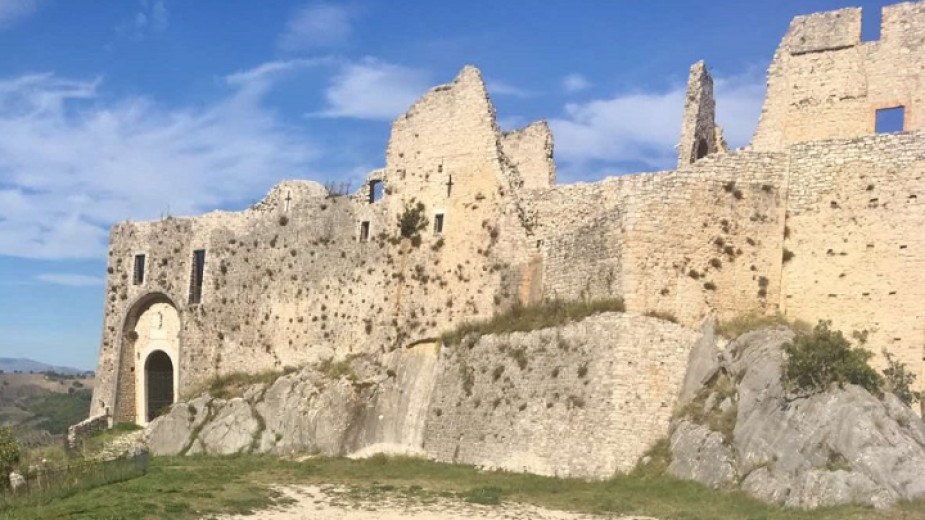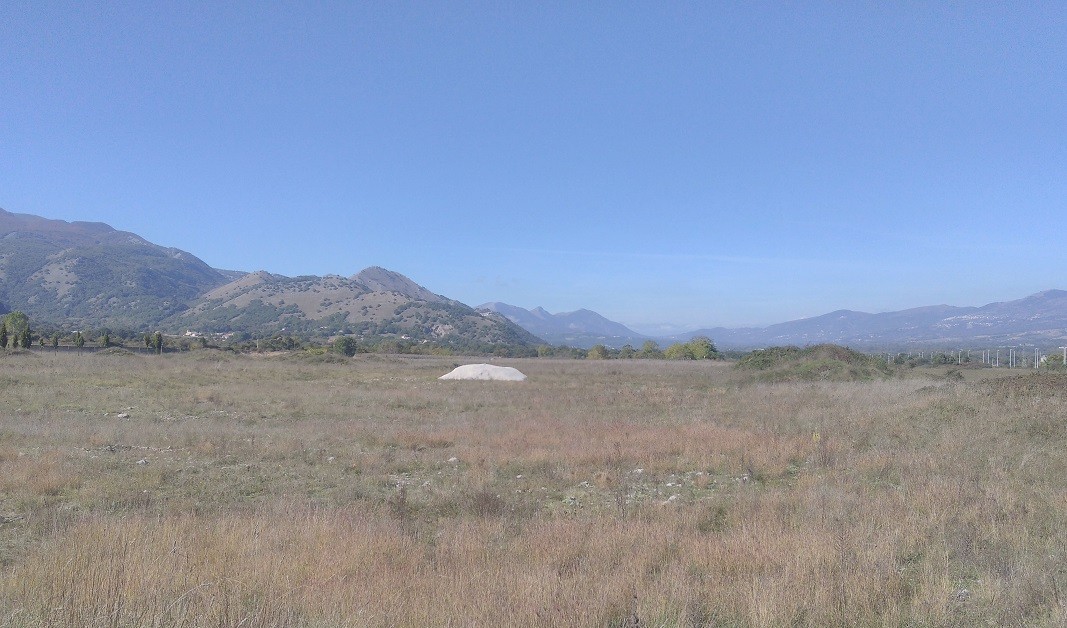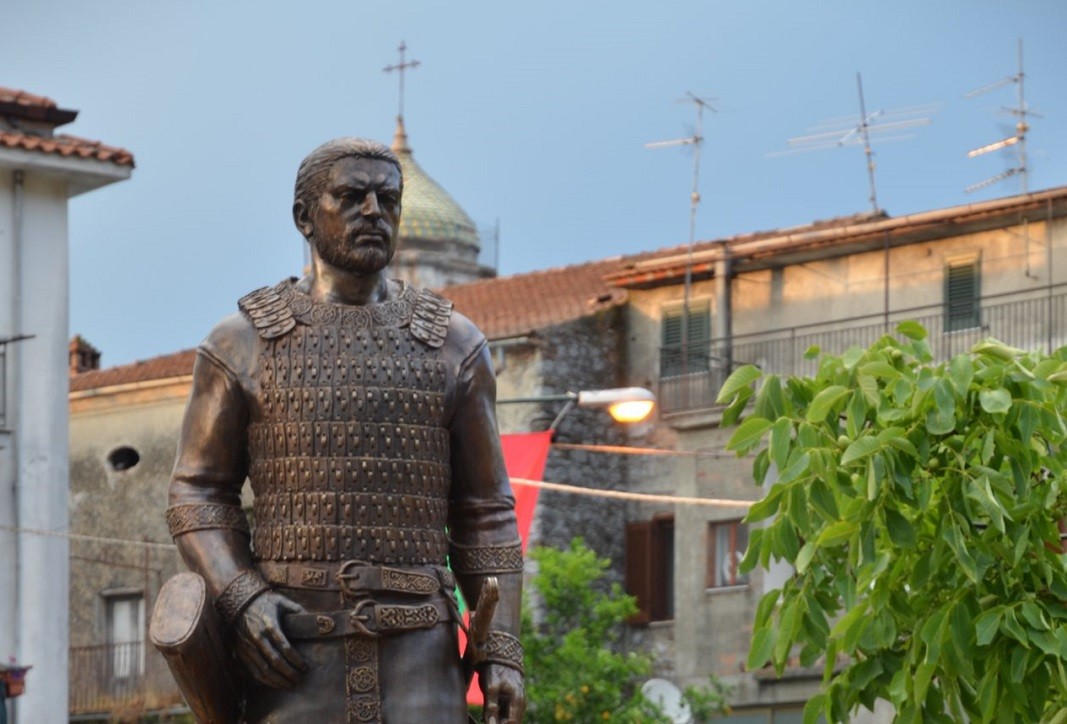 4
4
There are at least a hundred Italian settlements and localities which are said to be of Bulgarian origin. Most are located south of the capital Rome. Celle di Bulgheria in Salerno Province is the most popular one. The local population proudly call themselves “descendants of Bulgars”. Who are these people and what is the link that connects them with Bulgaria? The new documentary “Alcek and the Bulgars in Medieval Italy” is looking for an answer to this question. Its premiere is on September 10.
“We shot this movie, because of the two interesting necropolises in Campochiaro- a small village located in South Italy. Archaeologists discovered them at the end of the 1980’s- the film’s script writer Ivo Ivanov who also works in Radio Bulgaria says. - To everyone’s surprise, soldiers buried together with their horses and all their combat gear were discovered during archaeological excavations. We are 99% sure that these tombs are connected with the Proto-Bulgarians in Italy. And this is where the whole mystery begins!”, Ivo Ivanov contends.
 Scientists associate the Bulgarian roots of the local population with Alcek who is believed to have been brother of Khan Asparuh. In their view, Alcek settled in the lands of the Lombard Kingdom shortly before Asparuh founded the First Bulgarian Empire in 681.
Scientists associate the Bulgarian roots of the local population with Alcek who is believed to have been brother of Khan Asparuh. In their view, Alcek settled in the lands of the Lombard Kingdom shortly before Asparuh founded the First Bulgarian Empire in 681.
“It so happened that in the beginning of the 7th century these Bulgarians found themselves in Molise region. They were used as mercenaries- Ivo Ivanov explains. – The film tells us how they found themselves there. In fact, their life was not easy at all! They settled on the territory on present-day Italy as refugees, because they fled from the Avar Khaganate. They were persecuted in the Frankish State in Bavaria and became allies of the Lombards (Langobards) who sent them to fight against the Byzantine Empire, because at that time Lombards fought with the Byzantines in South Italy.”
The film “Alcek and the Bulgars in Medieval Italy” takes us to the town of Celle di Bulgheria. A monument to Alcek was built in the town center.
 “We met with many interesting people there who hold the name of their hometown Celle di Bulgheria and their mountain Monte Bulgheria dear, Ivo Ivanov went on to say. The locals keep the legends of the Bulgars who lived there. But probably our ancestors settled there before Alcek. It is assumed that during the Gothic Wars there were Bulgars who served as mercenaries in the armies of Byzantine general Belisarius.”
“We met with many interesting people there who hold the name of their hometown Celle di Bulgheria and their mountain Monte Bulgheria dear, Ivo Ivanov went on to say. The locals keep the legends of the Bulgars who lived there. But probably our ancestors settled there before Alcek. It is assumed that during the Gothic Wars there were Bulgars who served as mercenaries in the armies of Byzantine general Belisarius.”
In the 1940’s Italian historian Professor Vincenzo D’Amico announced that more than 700 settlements on the Italian peninsular were founded by Proto-Bulgarians. Ivo Ivanov tells Radio Bulgaria how 30 years ago he came across his works in the National Library in Sofia.
“Professor D’Amico was a doctor with various interests. He was an ethnographer as well. He began his researches, because every time he was asking his patients from the nearby villages who they were and where they came from they always answered him- “We are descendants of the Bulgars!” We also filmed the Costume Museum in Molise. The audience will see that there is a clear presence of Bulgarian folklore on some folk costumes that were preserved until the beginning of the 20th century.”
The Feast of the Epiphany - the entry of the Theotokos into the Temple - is one of the oldest and most revered feasts in the Orthodox world. It was introduced in Constantinople around the 8th century during the time of Patriarch Tarasius. It was six..
The Museum of the Jewish People in Tel Aviv , Israel, today commemorates the 130th anniversary of the birth of Dimitar Peshev, a righteous man of the nations of the world, deputy chairman of the 25th National Assembly of Bulgaria, the Bulgarian..
The Bulgarian Land Forces are celebrating their holiday today. A statement from the Ministry of Defense's press center notes that November 19, 2024 marks 139 years since the glorious victory at Slivnitsa and 146 years since the establishment of..
105 years ago, on November 27, 1919, a treaty was signed in the Parisian suburb of Neuilly-sur-Seine, officially ending Bulgaria's..
The head of the statue of Tyche, the goddess of Philippopolis, has been discovered in the Episcopal Basilica in Plovdiv, said the head of the..

+359 2 9336 661
